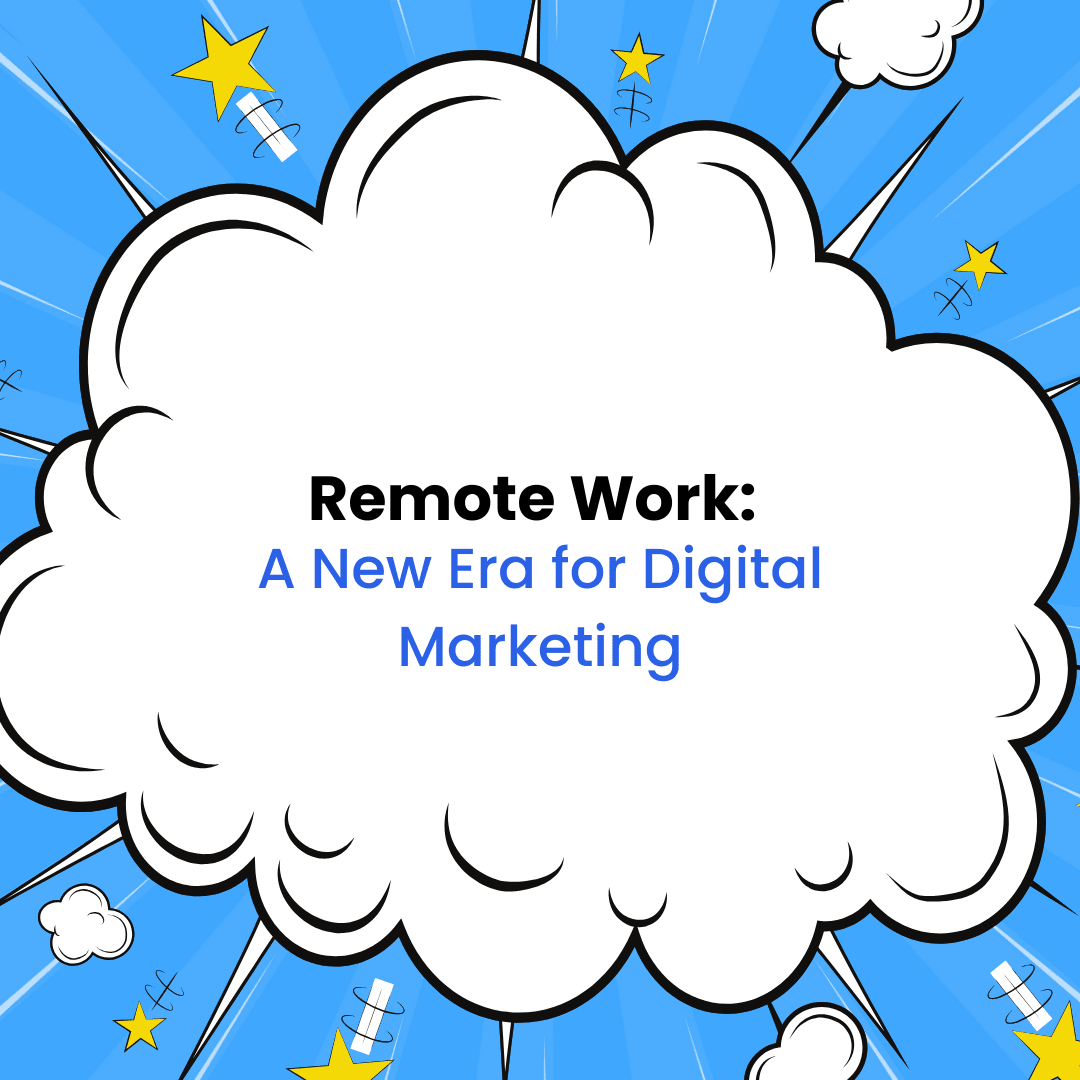Introduction
The digital marketing landscape has undergone a significant transformation in recent years, with remote work emerging as a prominent trend. As technology continues to advance, more and more digital marketers find remote work’s flexibility and convenience to be increasingly appealing. In this blog post, we’ll explore the benefits and challenges of remote work in digital marketing and discuss how it’s shaping the industry’s future.

Benefits of Remote Work
- Increased Flexibility: Remote work offers digital marketers the freedom to work from anywhere with an internet connection. This flexibility can lead to improved work-life balance and reduced stress. For example, digital marketers can choose to work from home, a coffee shop, or even a beach, as long as they have a reliable internet connection.
- Enhanced Productivity: Remote workers often report higher levels of productivity due to fewer distractions and the ability to create a personalized workspace. When working from home, digital marketers can eliminate the noise and distractions of a traditional office environment, allowing them to focus on their tasks and be more productive.
- Access to a Global Talent Pool: Remote work allows digital marketing teams to hire talent from all over the world, expanding their access to skilled professionals with diverse perspectives. This can be particularly beneficial for businesses that need to reach a global audience.
- Cost Savings: Remote work can help businesses reduce overhead costs by eliminating the need for physical office space and associated expenses. This can be a significant cost-saving measure for businesses of all sizes.
Challenges of Remote Work
- Social Isolation: Remote work can lead to feelings of isolation and loneliness, as digital marketers may miss the social interactions and camaraderie of working in an office. To combat this, it’s important for remote teams to schedule regular virtual meetings and social events to maintain strong relationships.
- Communication Challenges: Effective communication is crucial in digital marketing, and remote teams may face challenges in maintaining strong communication channels and building a sense of team cohesion. Using collaboration tools and scheduling regular check-ins can help to address these challenges.
- Time Zone Differences: When working with clients or team members in different time zones, coordinating meetings and ensuring timely responses can be difficult. To overcome this, it’s important to plan and use tools that allow for asynchronous communication.
- Blurred Boundaries: The lines between work and personal life can become blurred, leading to burnout and stress. Remote workers need to set clear boundaries and establish a dedicated workspace to help maintain a healthy work-life balance.
Tips for Successful Remote Work
- Establish Clear Communication Channels: Use tools like Slack, Zoom, and project management software to facilitate effective communication.
- Set Boundaries: Create a designated workspace and establish clear boundaries between work and personal time.
- Utilize Collaboration Tools: Tools like Google Drive, Asana, and Trello can help remote teams collaborate effectively.
- Build Trust and Relationships: Foster a culture of trust and open communication within your team.
- Prioritize Self-Care: Take care of your physical and mental health to avoid burnout.
Conclusion
The future of remote work in digital marketing looks promising. As technology continues to evolve, we can expect to see even more innovative tools and strategies to support remote collaboration and productivity. However, businesses and individuals need to address the challenges associated with remote work to ensure its long-term success. For any inquiries regarding digital marketing, please do not hesitate to consult us.

